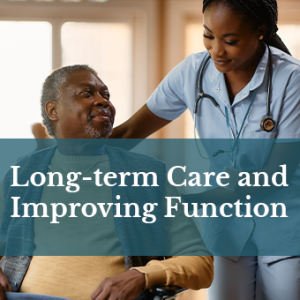
Life Doesn’t End: Maintaining Community & Dignity in Long-Term Care
Presenter(s):
Miranda Potts, The Eva Marsden Centre for Social Justice & Aging, Canada
Abstract
When older adults feel included in their communities, they are more apt to be socially engaged in community life and experience a sense of belonging. Inclusion has been found to enhance well-being, contribute to better physical and mental health outcomes and decrease loneliness and social isolation. Unfortunately, many older adults face persistent challenges to feeling a sense of inclusion within their communities. Some main challenges include poor accessibility due to a lack of age-friendly public spaces and limited transportation options, social issues related to ageism and negative perceptions of aging, and limited financial resources that can diminish opportunities for social engagement. These challenges play a large role in contributing to growing public health and public policy concerns related to chronic social isolation and loneliness among older adults.
Addressing these challenges requires a comprehensive approach, including community investment in inclusive spaces and programs. Community organizations that support older adults can be especially vital in facilitating the types of social connections that contribute to older adults feeling valued and experiencing a sense of belonging.
In this presentation, I will first discuss the unique health system structure of Quebec. Quebec offers a plethora of free accessible programs for the general population and for Seniors. The province is notably known for their free and accessible local community health centres (CLSC) situated in every borough through out the province and multiple programs and policies surrounding senior issues and healthy aging cities initiatives. Finally, our province offers multiple options for seniors’ housing such as long-term housing centres (CHSLD), intermediate resources (RI) and private residence for seniors (RPAs).
Quebec is also known for intersectoral collaboration between healthcare and community organizations. The second part of my presentation will discuss how the community organization where I am employed as Director, Outreach and Education is working in collaboration with numerous other organizations to offer programs and services that help to identify and address some of the underlying causes of poverty and exclusion affecting older adults in our local community. I highlight some innovative practices that aim to create a welcoming space that is open to everyone, where differences are embraced, and where challenges related to cost and lack of transportation can be addressed so they do not prohibit older adults’ social participation. Through my work, I have discovered that when such welcoming and inclusive spaces are created, older adults create close-knit ties that contribute to their sense of belonging.
Despite some encouraging outcomes resulting from our inclusion initiatives, efforts to promote inclusion are not without their challenges. For example, interconnected identity-related differences such as race, class, gender, age, ability, and sexual orientation can pose challenges that must be negotiated before diverse older adults will experience true inclusion within community spaces. In this presentation, I will discuss some of the challenges I have encountered and recount the steps I have taken to create a supportive environment while demonstrating inclusive leadership and flexibility in ways that help to bridge differences and ensure all older adults are valued as their authentic selves.
Bio(s):
Raised by an activist, social worker, single mother, Miranda grew up on picket lines and has been involved with community work and social activism for nearly her entire life. She was raised and currently resides in the Notre-Dame-de Grace community of Montreal where she continues to advocate for marginalized people while promoting inclusion and diversity through her work. Miranda co-Founded WIN, an intergenerational community organization and Gay & Grey a 50+ organization catering for LGBTQIA+ programs and rights. With the state of Quebec’s health & social systems in disarray and with the lack of resources, Miranda also accepts private clients in the areas of support and advocacy, psychosocial interventions and cognitive stimulation.
Miranda’s enthusiastic leadership in her community has been recognized through
appointments to boards and committees of organizations, such as the Montreal Council of Women (winner of the Women of the Year-Unsung Hero Award-2021), (CIUSSS) Cavendish User’s Committee-Interim President; Bienvenue a NDG, New Hope Seniors Centre; Coup de Balai. In February 2025, Miranda was acknowledged in Quebec’s National Assembly by MNA (Member of the National Assembly) Desiree McGraw.
